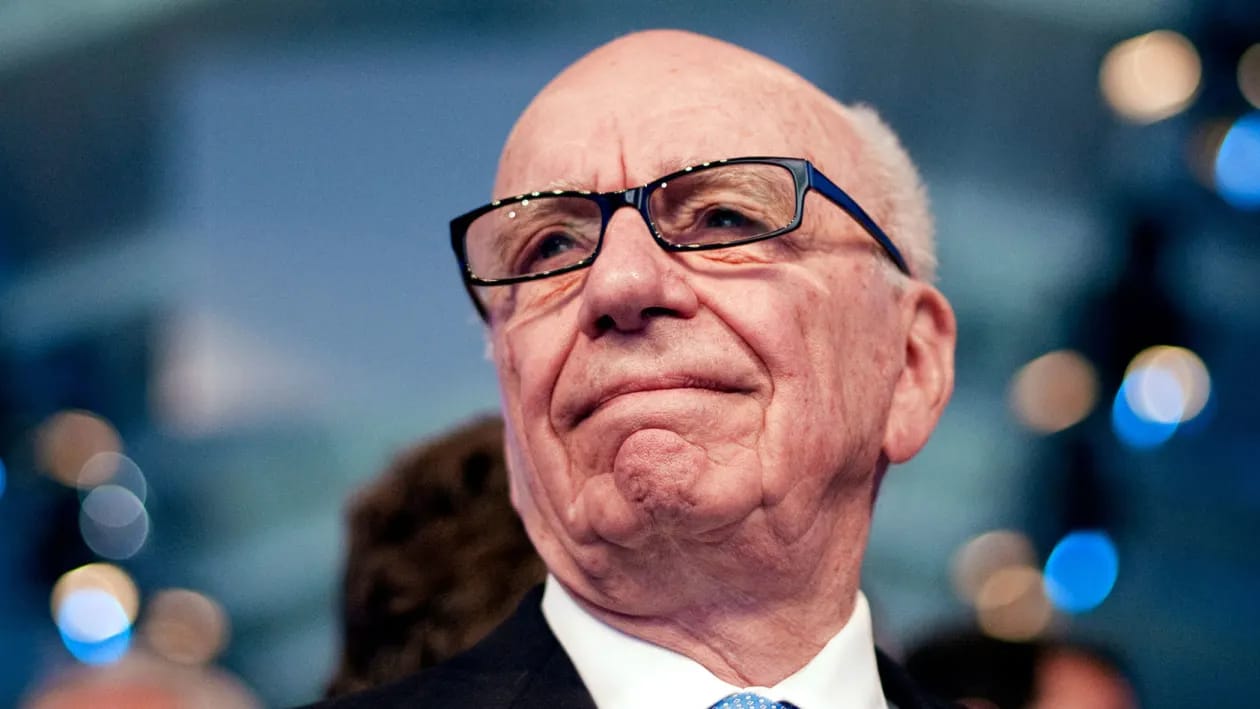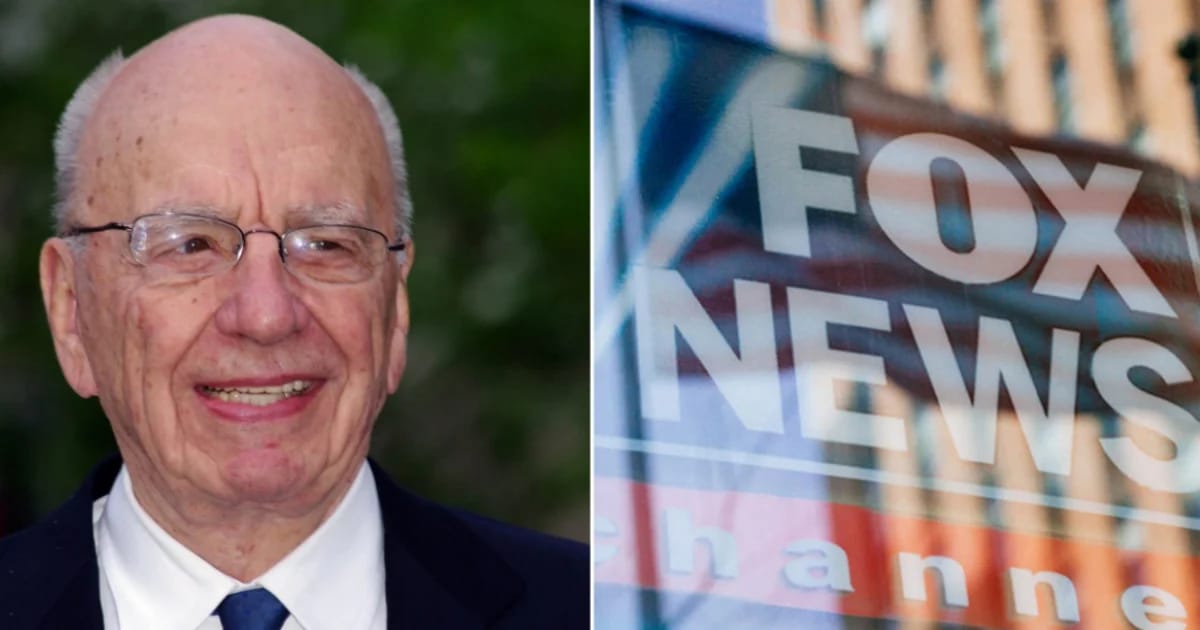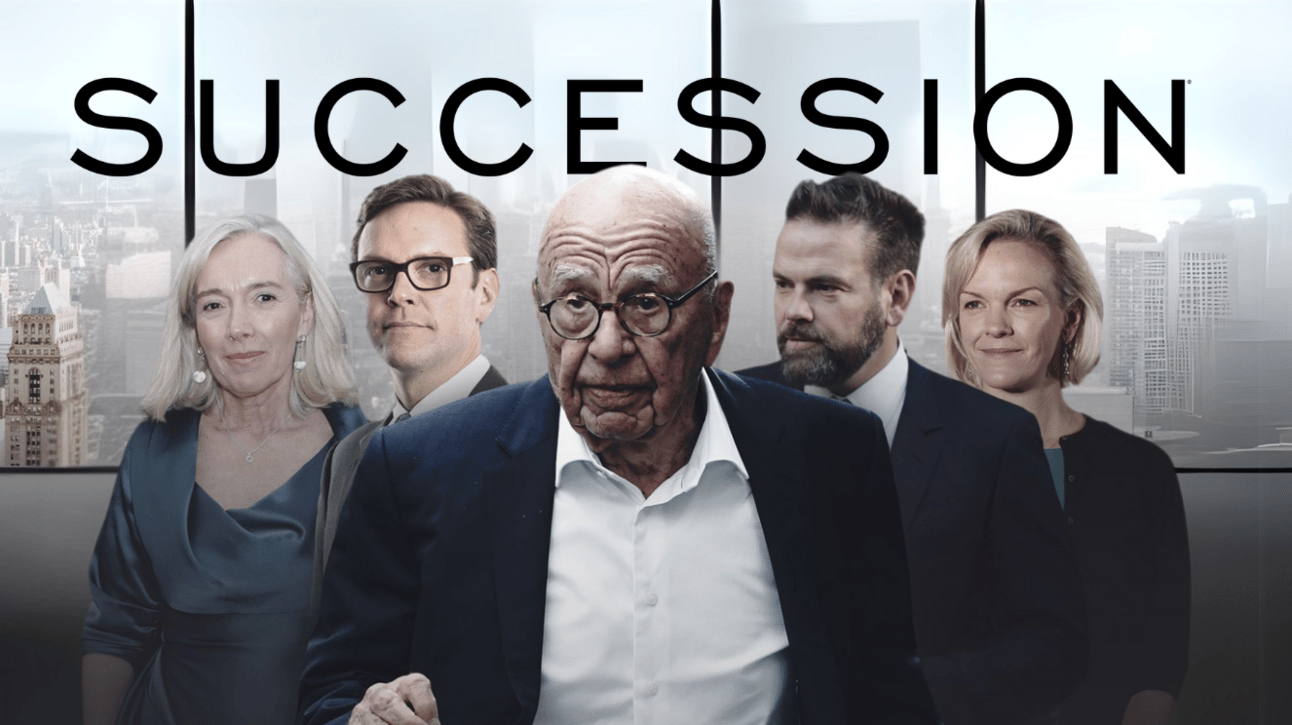- Investor Briefcase
- Posts
- The Man Who Shaped Modern Media
The Man Who Shaped Modern Media
Inside the Murdoch media dynasty and its fight for control
Rupert Murdoch turned a small Australian newspaper into a $20 billion media empire that controls The Wall Street Journal, Fox News, and The Times of London. Over decades, he shaped how millions consume news and politics, but a bitter family feud now threatens to tear apart the legacy he built.

This week, we investigate how Murdoch built a media empire, the investments that defined his career, and the controversies of family conflict.
💼 From Local News to Global Media
📈 Investments That Changed Media
💥 Family Feud & Succession
— Investor Briefcase Team



Rupert Murdoch was just 21 when he inherited The News, a struggling regional newspaper in Adelaide, Australia, after his father’s death from cancer in 1952. While his father, Sir Keith Murdoch, focused on running a small but respected publication, Rupert had placed his eyes on expansion above all else. He envisioned creating a vast network of newspapers that would shape public discourse and influence national conversations.
At the time, Australian media was highly fragmented, and local newspapers were losing ground to the growing popularity of radio and television. Murdoch saw an opportunity to turn this around by consolidating struggling newspapers under one network. Unlike his father, Rupert was not afraid to bend the rules as he published stories with mass appeal while using sensational headlines to capture attention and rapidly grow readership and profitability.
“We didn’t just publish stories. We gave people a reason to pick up the paper every day and read our version of the news.”
Murdoch’s success with The News drove an aggressive takeover of Australian media, acquiring papers like The Daily Mirror and The Herald Sun. Sensational headlines and eye-catching layouts rapidly increased circulation, while underperforming writers were ruthlessly fired to slash costs and maximize profits.
By the 1960s, Murdoch controlled a substantial portion of Australian media, making him one of the most influential figures in the country. With dominance at home secured, he turned his sights overseas, recognizing that control of the English-speaking media in the UK and the U.S. would potentially secure him the media empire he was after.


Murdoch’s first major international move came in 1969, with the purchase of the UK’s News of the World for £500,000. The paper was already well-known but struggling financially. Murdoch applied the same formula that had worked in Australia, introducing bold headlines and aggressive reporting. Readers responded, and the paper quickly became profitable, proving the effectiveness of his approach.

Shortly after, Murdoch acquired The Sun, another struggling UK publication. He shifted its focus to appeal to working-class readers by prioritizing celebrity gossip, sports, and sensational headlines over traditional news. The strategy paid off as The Sun became Britain’s most-read tabloid, surpassing 4 million daily readers by the 1980s and generating millions in annual profits, solidifying Murdoch’s reputation as a master of media turnaround.
“In business, you have to adapt or risk becoming irrelevant.”
Using profits from his UK newspapers, Murdoch entered the U.S. market in 1976 by purchasing The New York Post. He applied the same formula that had worked in Australia and the UK, focusing on sensational headlines and a mix of entertainment and political coverage. The success of the Post gave him the momentum to make his largest bet, acquiring 20th Century Fox in 1985 for $580 million.
The addition of 20th Century Fox allowed Murdoch to enter the television market. He launched Fox Broadcasting, shaking up traditional networks with shows like The Simpsons, which appealed to younger viewers and challenged conventional programming. In 1996, he further expanded with Fox News into political debates which quickly became a leading voice in cable news by catering to conservative audiences.
By the 1990s, Murdoch’s empire reached hundreds of millions of people through newspapers, TV channels, and film. His focus on creating profitable, attention-grabbing content transformed media, making his empire one of the most influential in the world.

Sponsored by Hubspot
Transform Your Excel Skills with 50 Pro Hacks (+ Free Templates)
Stop wrestling with spreadsheets. Our comprehensive Excel mastery pack includes everything you need to become a spreadsheet wizard in record time.
Master 50 essential Excel tricks with step-by-step GIF tutorials
Create stunning data visualizations using done-for-you graph templates
Learn time-saving shortcuts the pros use daily
Access game-changing formulas and functions explained simply
Ready to revolutionize your Excel workflow?



While Rupert Murdoch built one of the world’s most powerful media empires, the future of that empire is far less certain. His 2023 retirement placed control of Fox Corporation and News Corp into the hands of his eldest son, Lachlan Murdoch, sparking tensions within the family.
With a media dynasty, worth over $20 billion, it has been marked by public and private divisions among Rupert’s four children—Lachlan, James, Elisabeth, and Prudence. Lachlan, seen as Rupert’s chosen successor, aligns closely with his father’s conservative views and leadership style. James, however, has distanced himself, openly criticizing Fox News for its role in fueling political polarization.
The family trust, now the focus of speculation, has turned into a source of internal conflict. Many insiders believe the unresolved tensions could splinter the media business that Rupert spent decades building. At 92, Murdoch still casts a long shadow over the company, but his ability to guide its direction has shifted to the next generation.
“Success isn’t just about building something great—it’s about ensuring it survives after you.”
Starting with a single newspaper in Adelaide, Rupert Murdoch built a media empire that shaped public opinion, influenced elections, and reached millions of daily viewers and readers worldwide. Now, the very family that benefited from this vast power is at risk of dismantling it, leaving the future of one of the world’s most influential media conglomerates hanging in the balance.

More Stories
Other Media Moguls
> Ted Turner: Founder of CNN and Turner Broadcasting System, credited with revolutionizing cable news and entertainment through innovative programming.
> Sumner Redstone: Former chairman of ViacomCBS, who played a pivotal role in the expansion of Viacom and CBS, making them global media giants.
> Jeff Bewkes: Former CEO of Time Warner, responsible for steering the company through the digital age and launching the popular streaming platform HBO Max.
> John Malone: Chairman of Liberty Media, a major player in the cable and media industries, known for his strategic investments and consolidations.
> Michael Bloomberg: Founder of Bloomberg LP, a global leader in financial news and data, as well as a philanthropist and former mayor of New York City.

Each week we profile the most notorious investment stories.
Got an idea for a story? Email us at [email protected]

